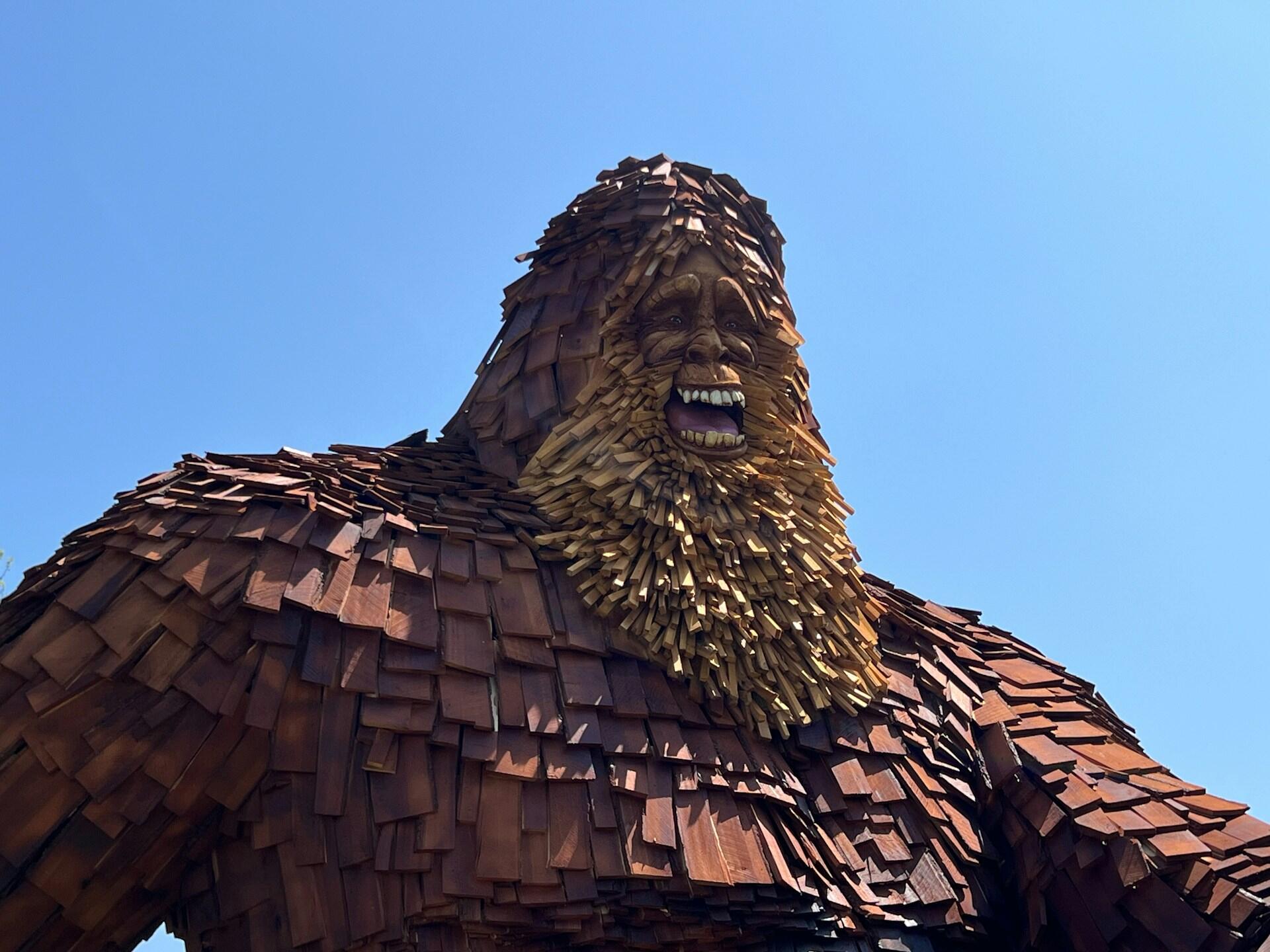Beowulf may be the hero of the so-named epic poem but Grendel is arguably its star. It is this monster that sets everything in action; the (anonymous) author takes great pains to narrate his acts. However, the author doesn't provide a clear description of this beast. Readers are left to interpret Grendel through the fear he inspires and the heroism needed to defeat him.
Meaning of Grendel in Context
- Grendel is the first of three monsters Beowulf will defeat.
- Grendel seems to know the limits of his power, but Beowulf's hubris blinds him to his own vulnerability.
- The poem existed as an oral tradition, likely long before anyone wrote it down.
- The poem leaves no doubt that Grendel is cursed, powerful, and an enemy of humans.

Grendel: The Prototype for Medieval Monsters Literature
As a model for all future monsters, Grendel - or, more specifically, his creator - didn't give future writers much to go on.
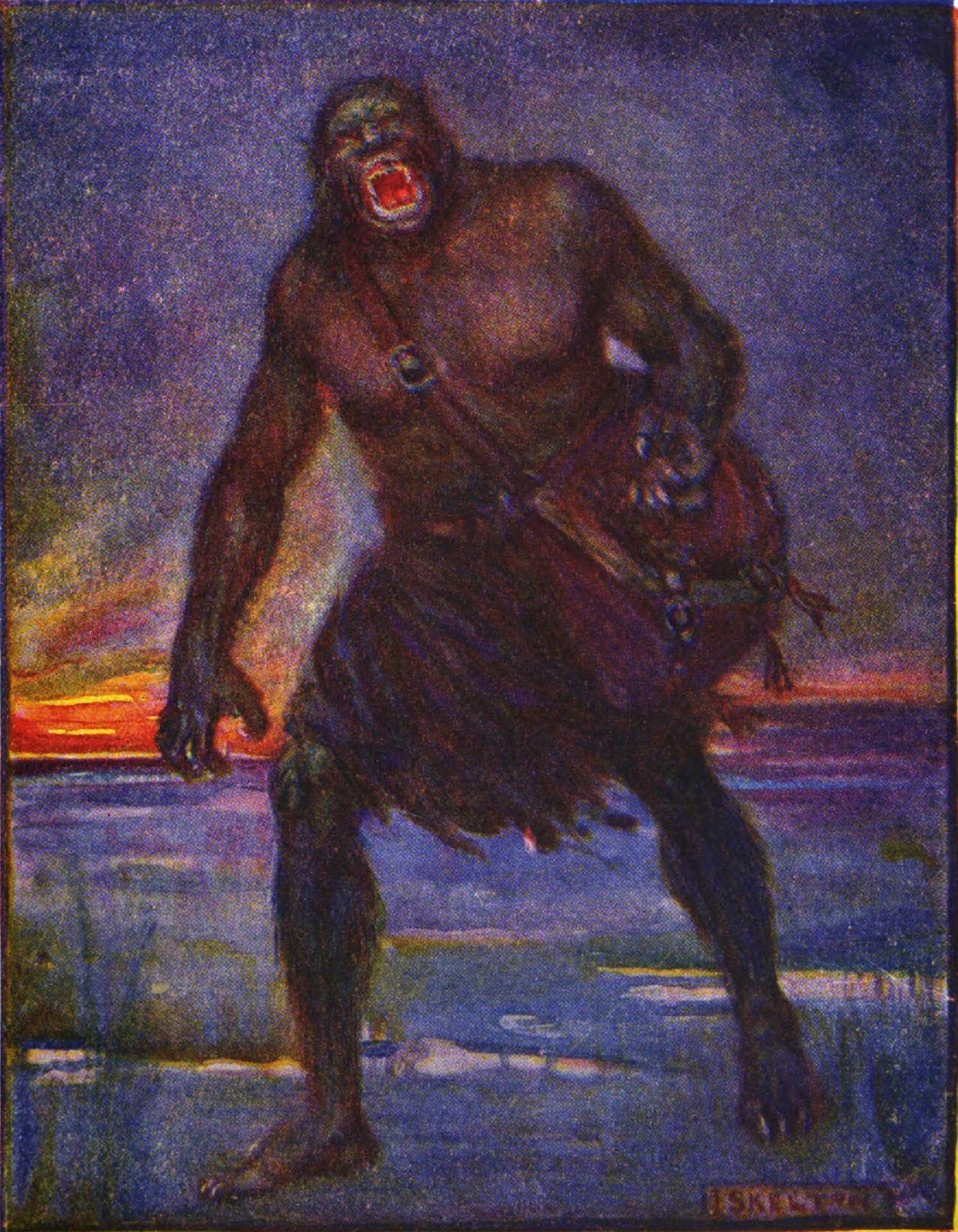
The author(s) gave only the vaguest physical description. The literary community generally accepts that Grendel must be a giant, and we know he's fearsome-looking. Furthermore, it took four men to carry the arm Beowulf had ripped off. Thus, we can safely conclude that Grendel was indeed a large, powerful creature.
The visual vagueness serves to put the focus on this monster's deeds. He's feared across the land, keen to eat humans, and immune to weapons.
These, we can bundle into the 'fear of the unknown other' trope that underpins later works of medieval monster literature.
1. fear of the unknown other.
2. Fear of the unclean.
3. upholding morality.
4. Distinct gender roles.
5. The struggle for good versus evil.
Most of Beowulf's female characters serve a distinct purpose, minimal though they may be. The one exception is Grendel's mother, the powerful monster driven to revenge after her son's death. She is one of two female characters who defy the standard gender role. Queen Modthryth is also initially defiant but is later 'tamed' through marriage.
In medieval monster literature, Bram Stoker's Count Dracula comes the closest to following this template. The vampire, far from good, inspired fear - of immigrants, of disease, and of amorality. The story outlines distinct gender roles, including for Mina, the untypical female character. And, of course, the 'good' vampire hunters succeed in vanquishing the 'evil' vampires.
Without a doubt, Beowulf is all about the good-versus-evil struggle. The text makes it clear that Beowulf is the hero and Grendel is evil and unclean. Like all epic poems, vanquishing the monster is inevitable.
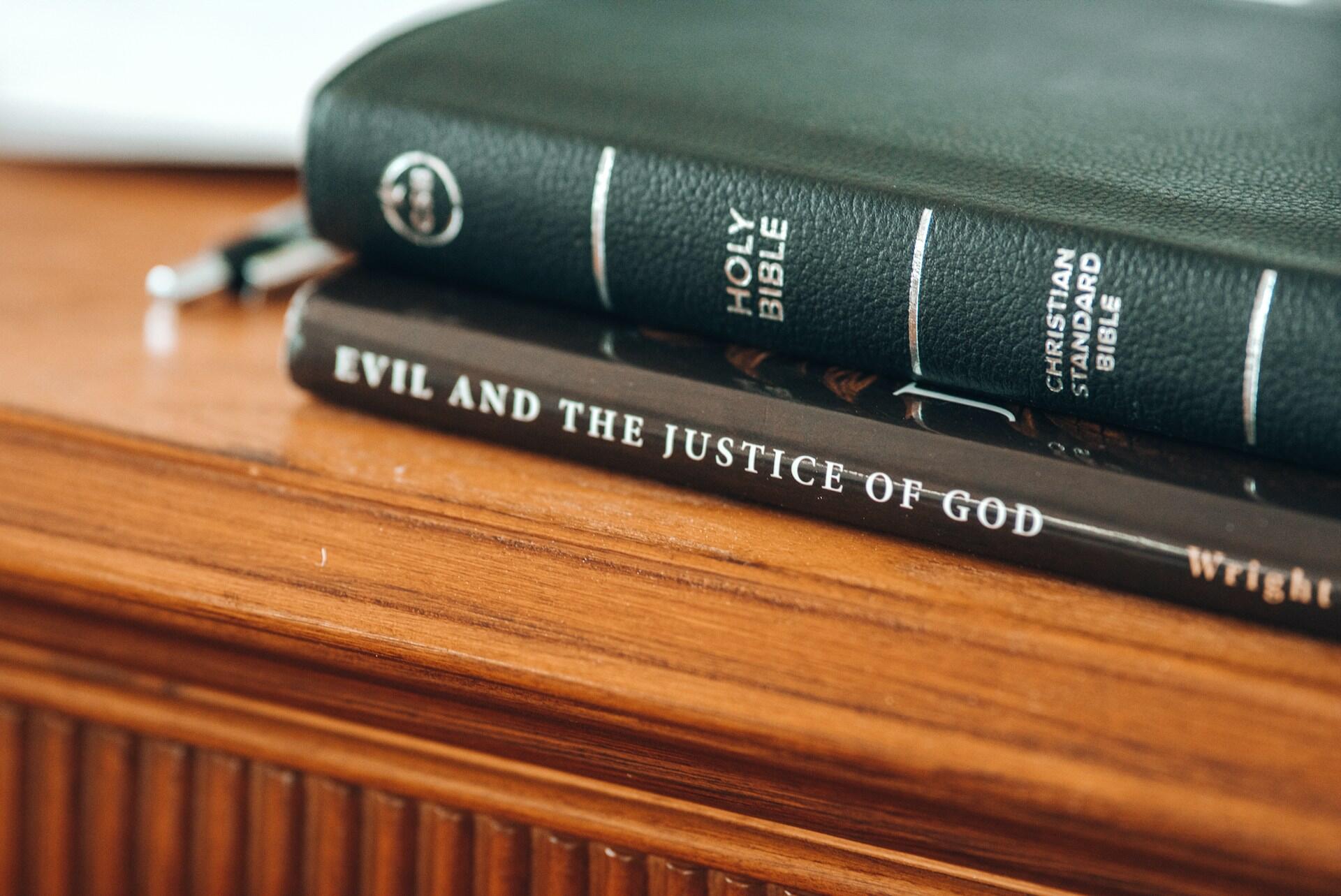
Exploring the Themes of Beowulf
The fame-shame-pride theme dominates, just as it does in most epic poems. Beowulf and his warriors brag endlessly about their conquests and feats of strength. They go out of their way to disdain the possibility that they might die in battle. Any hint of shame is more of a curse than an embarrassment.
The men flee from the dragon, a shameful act that Wiglaf criticises them for. He implies that their shame will bring ruin to the Geatish people.
Tribe and family represent the second dominant theme. In medieval Germanic cultures, allegiance was everything. The poem describes unattached beings such as Grendel as lonely and joyless. The writers drive this point home by assigning titles to those within the tribe. Such include wife, son, father, daughter ... Always of a particular man.
Goodness, another common theme in epic poetry, is emphasised. We have good kings and good warriors, but their brands of goodness often do not overlap.
Change and repetition are also present as a theme. Beowulf repeatedly fights monsters, but the monsters change. Repetitions reflect the continuity of life. The story itself begins and ends with funerals for kings.
More than demonstrating life's continuity, these repetitions teach us that every current event is a rehashing of a past event.
Many contend that Mary Shelley's work, Frankenstein, presents these same themes. Her creature certainly knows shame, and its creator is prideful indeed. Her work presents goodness in a decidedly different light - the creature is good, the creator is bad. As for belonging, the creator's rejection of his creature is a central theme.

Symbolism of Grendel in Beowulf
[He is] a creature of darkness, exiled from happiness and accursed of God, the destroyer and devourer of our human kind.
Gwyn Jones, from Kings, Beasts, and Heroes.
Considering its Northern European setting, the original poem likely reflected pagan beliefs. However, those who transcribed it were likely Christian, so they added Christian details to the poem.
That makes sense, as monks and other religious figures benefited from education while the general population did not.
Literary historians present an alternate explanation or, perhaps, a related idea to explain the blending of religious elements.
When Beowulf was committed to paper, North Germanic societies were transitioning from paganism to Christianity. Storytellers may have updated their oral tale to reflect that change.
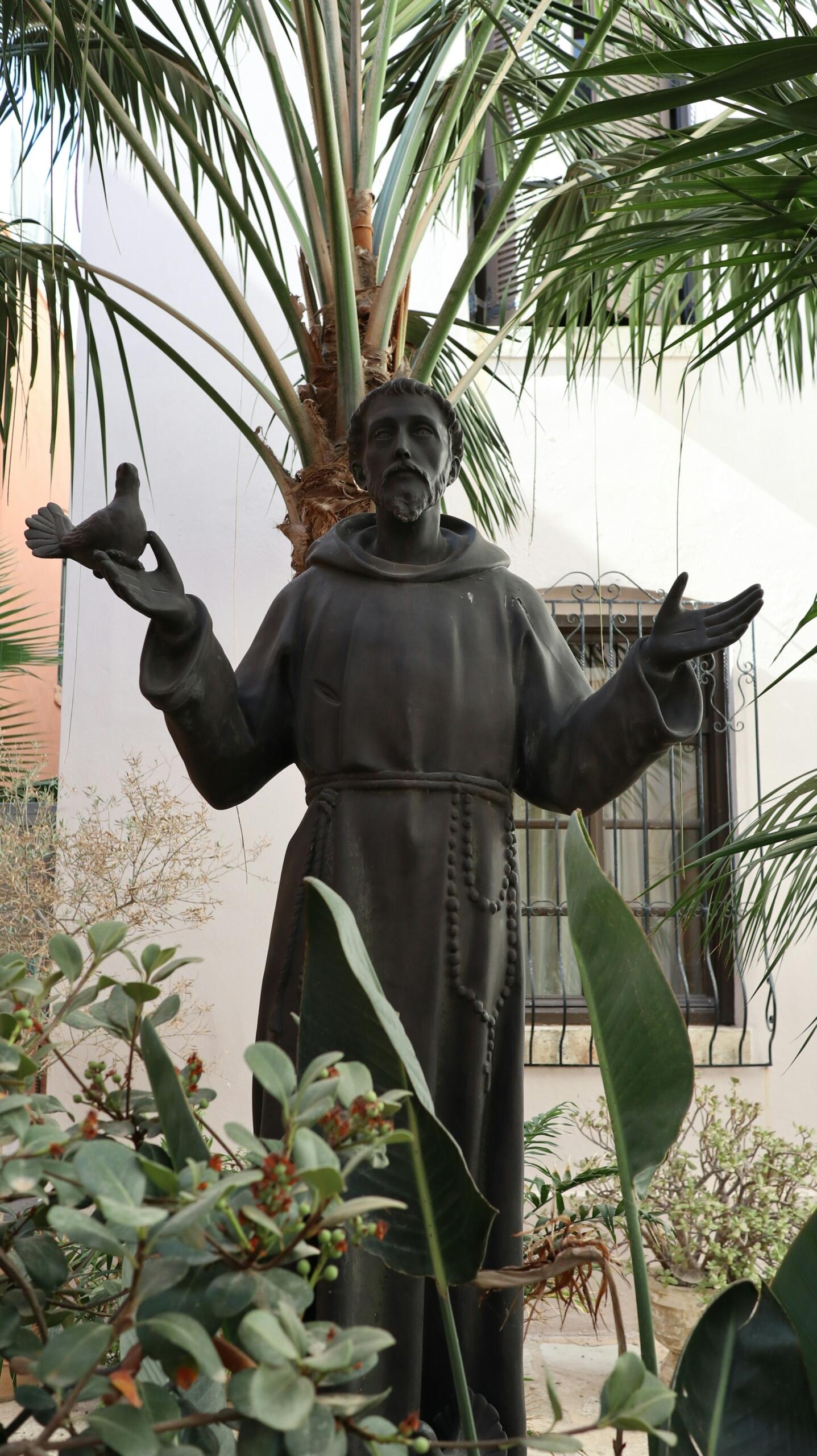
Either way (or both ways), this poem presents sharp ideological contrasts.
Christian undertones
- Christian moral framework
- salvation comes only through faith in God
- critique of pride; bringing of shame
- Beowulf attributes victory to God's will
- the hero promotes reliance on God
Pagan undertones
- Pagan characters; heroic code
- idol worship (old stone gods)
- the hero's overconfidence fighting the dragon
- Beowulf sees fate as a saving grace
- the hero is prideful and lusts for vengence
We can't know what type of hero Beowulf was in the oral tellings: Christian, pagan, or a blend of both? We do know that the written version presents Beowulf as a hero with both Christian and pagan beliefs.
The influence of Christian scribes on the text is undeniable. The poem calls God the ultimate judge and ruler. It also references events in the Old Testament, in apparent disregard of that civilisation's oral traditions.
The Epic Narrative and How Grendel Drives It
As noted above, Beowulf would have no reason to leave his native land if not for Grendel making King Hroðgar's mead hall unusable. Well, that and needing to prove himself.
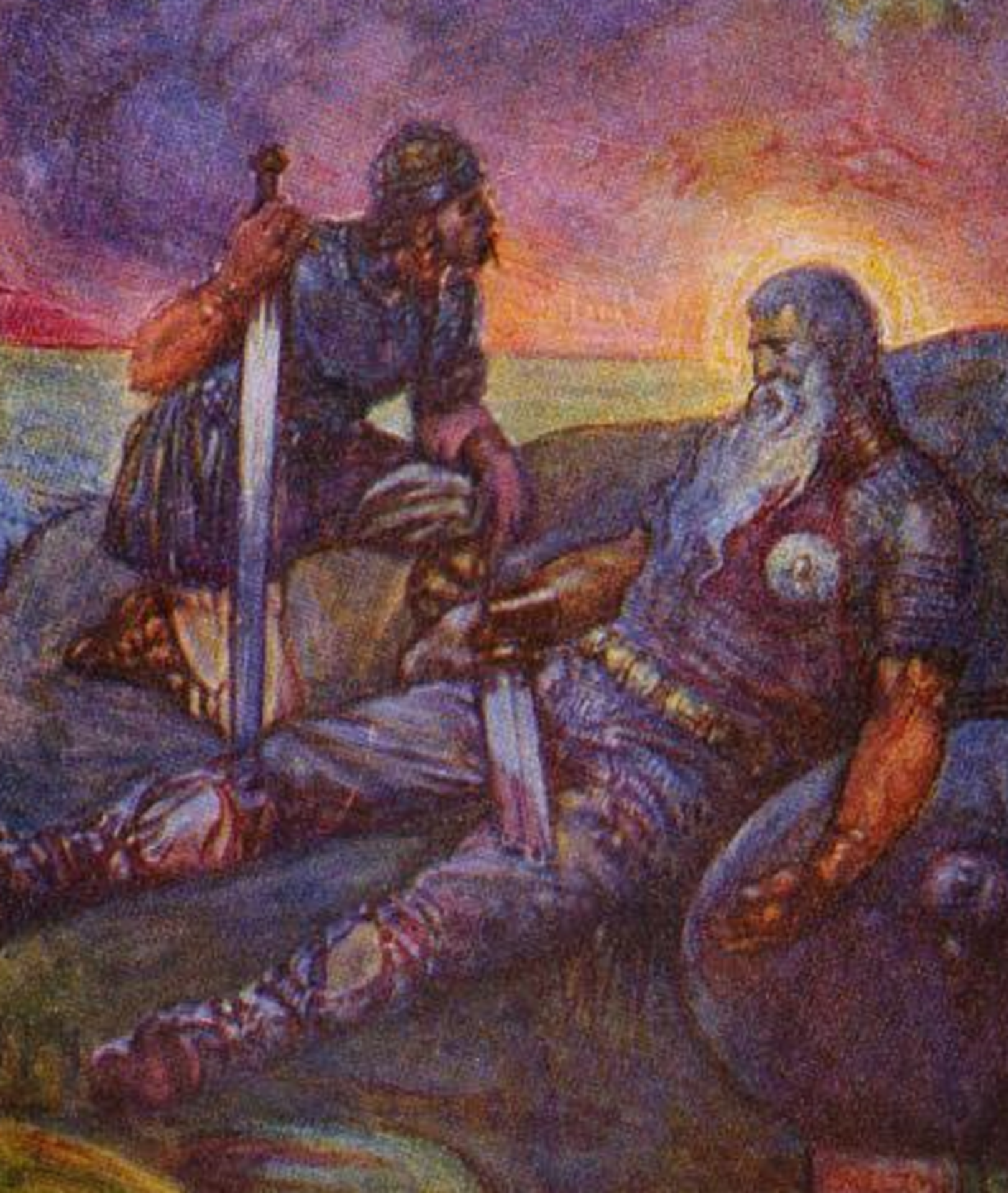
Upon learning of this monster who has terrorised humans for a dozen years, Beowulf takes it upon himself to defeat him. The first part of the poem sets the stage, with Grendel as the principal actor. Even the hero's bragging and feasting takes in the monster as fuel.
Later, chasing the mortally wounded Grendel down, he confronts another monster. Grendel's mother is made yet more fierce for her desire to avenge her son.
Once the hero dispatches the vengeful mother, Beowulf claims Grendel's head as a trophy. It's no stretch to say that he carries the monster Grendel home with him.
Some might think that the monstrous Mr Hyde from Robert Louis Stevenson's Gothic horror story breaks from the monster template Grendel formed. On the contrary, he too is loathsome and invincible (for a time). Mr Hyde is frightful, like Grendel, and even his stature is quite unlike that of a normal Victorian-era man.
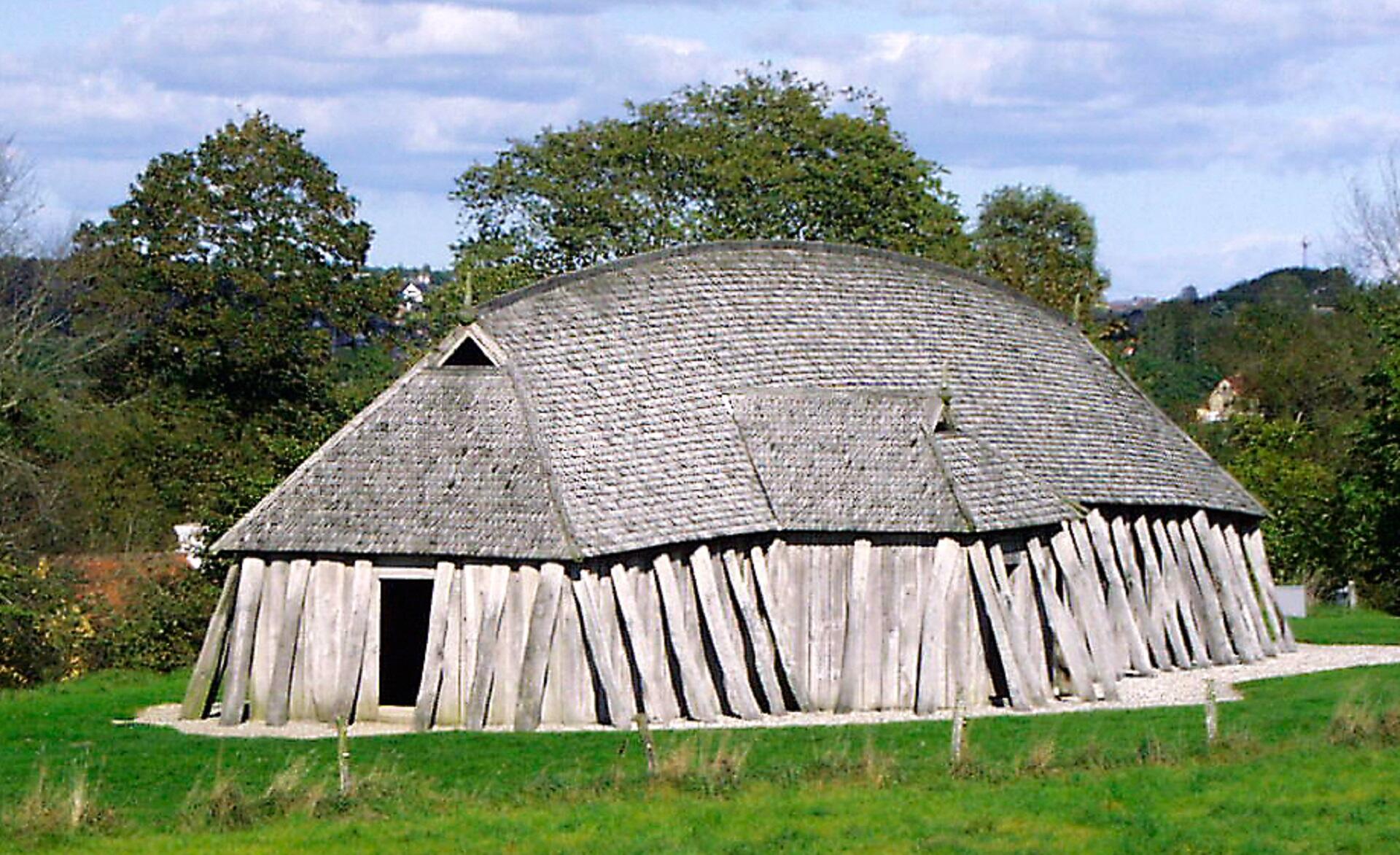
Grendel, the Ultimate Outsider
It's a wonder that nobody in the mead hall noticed that the monster attacked only when the singing began. Reflecting on that scenario, one might question why the warriors in that mead hall didn't deal with the monster themselves. They might even have tried not singing for one night, to see if an attack ensued.
But why would they bother to understand a being foreign to their clan? Grendel was the ultimate outsider: he looked different, he had no affiliations; he earned neither respect nor compassion from them. Thus, they were right to dispatch 'the foreign other'.
Across vampire lore, from oral traditions to modern tales of vampires, monsters have always been outsiders. This feature traces a firm connection between Grendel and those shape-shifting bloodsuckers. They are both cursed beings, which proves, once again, that Grendel was a model for all future monsters.
Medieval Monsters Literature: Grendel Sets the Pace
These days, reading Old English is limited to academic circles. We're happy to have the translated version to enjoy, and we're free to imagine what the original story must have been like. Still, anyone with a literary bent recognises this epic work's impact on English literature.
Grendel isn't just an iconic monster in English literature, he is the first such monster. The setting he appears in and the narrative describing him are more epic in nature. Still, there's no denying he's the creature all other English literature monsters spring from.
Summarise with AI:

